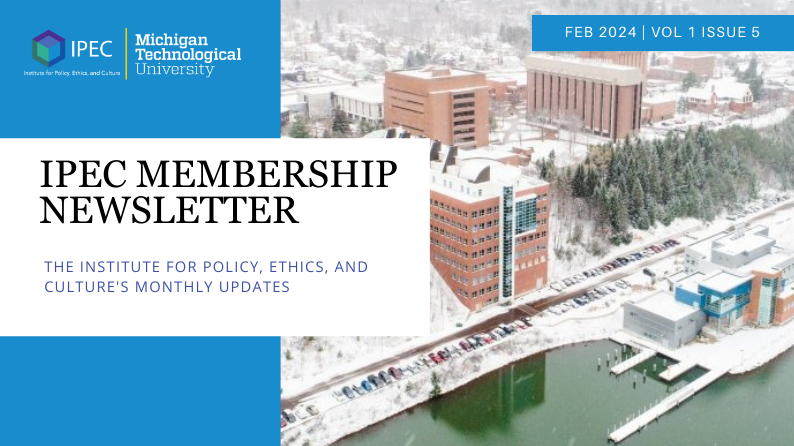The Institute for Policy, Ethics, and Culture (IPEC) announces the Spring 2024 Research Seed Grant award recipients. Congratulations to each of the awardees.
The principal investigators of the awarded projects include:
Faculty Small Seed Research Grants:
- Erika Vye (GLRC)
- Mark Lounibos (HU)
- Dana Van Kooy (HU)
- Mary Cyr (VPA)
- Chuck Wallace (CS)
- Alexandra Morrison (HU)
- Rich Canevez (HU)
- Mark Rouleau (SS)
Graduate Student Research Grants:
- Kyle Parker McGlynn, Ph.D. student — Industrial Heritage and Archaeology
- Aritra Chakrabarty, Ph.D. student — Environmental and Energy Policy
- Kendall Belopavlovich, Ph.D. candidate — Rhetoric, Theory and Culture
- James Akinola, Ph.D. student — Rhetoric, Theory and Culture
- Emma Johnson, Ph.D. student — Rhetoric, Theory and Culture
- Rachael Hathcoat, M.S. student — Rhetoric, Theory and Culture


